Despite the surge narco trafficking violence, most expats in Ecuador have no plans to leave
By Chris Kenning
At her house in Ecuador’s third largest city, its colonial buildings framed by the Andes mountains, LaRahna Hughes’ phone buzzed repeatedly with messages from relatives and friends back in the United States.
Are you OK? Are you getting out of the country?
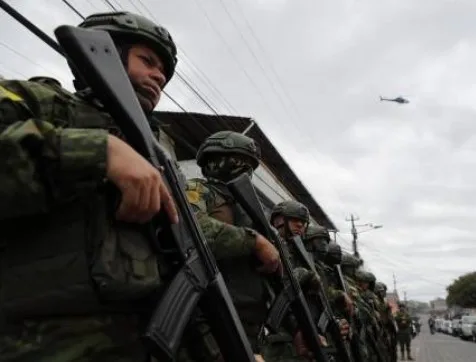
Under an emergency declaration to battle crime gangs, Ecuador military personnel are on patrol in much of the country.
It was early January, and Ecuador’s president declared that the nation had entered an “internal armed conflict,” mobilizing the military to fight drug gangs. The growing violence had reached a boiling point. There had been bombings. Prison guards were taken hostage. Masked gunmen took over a live TV broadcast.
In Ecuador – long regarded one of Latin America’s safest nations for U.S. residents seeking to retire abroad – many people fielded similar calls of concern.
But Hughes reassured loved ones that the attacks hadn’t targeted Cuenca. It’s nearly a four-hour drive from the epicenter of the violence in Guayaquil, the port city that has emerged as a new trafficking hub for cocaine from neighboring Peru and Colombia.
“I feel safe here,” she told USA TODAY, viewing the violence as more localized within Ecuador for residents and retirees alike than news headlines tended to suggest.
Still, growing crime in recent years hadn’t left all her fellow retirees untouched. Many adjusted to a nighttime curfew or adopted new safety measures. A few months earlier, one retiree who lives on the Pacific coast said she sped away from an attempted carjacking that left bullet holes in her vehicle.
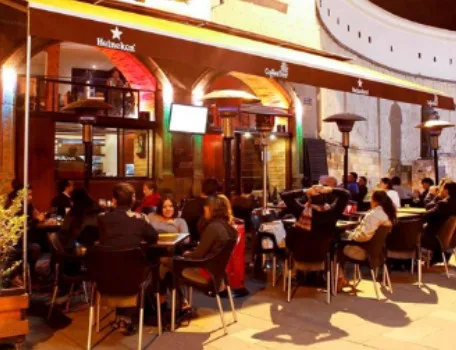
Expats in Cuenca say they enjoy the city’s culture as well as the nightlife.
Experts and retirees said there were no signs of a major exodus, with most living in areas where they felt safe enough to remain, even as some watch the ramped-up crackdown on gangs warily.
“You’re always asking that question,” said Michele DeWolfe, who lives in Olon, Ecuador, after moving from Colorado with her husband, a retired land surveyor, about 12 years ago. “Are you underreacting or overreacting? And at what point is it too much?”
The tumult in Ecuador has highlighted the potential uncertainties and difficult choices that can accompany any overseas crisis for the increasing number of Americans who choose to retire abroad.
Foreign countries often beckon with lower costs that equal a higher quality of life. And Ecuador for years been on the top-ten list of the retire-abroad publication International Living. While it still shouldn’t be written off, said editor Jennifer Stevens, “the current situation, however, gives us pause on the safety front.”
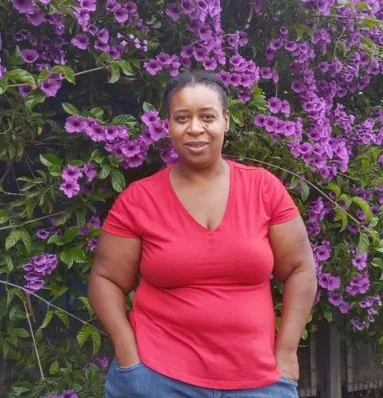
LaRahna Hughes, 51, decided to move to Ecuador, where she could have an early retirement that wouldn’t have been possible in the United States.
The U.S. State Department currently gives Ecuador a Level 2 travel warning, to “Exercise Increased Caution,” with some areas within the country given a Level 3, or “Reconsider Travel” warning and some a Level 4 warning, meaning “Do Not Travel.”
“Is it the best time in history to head off to retire in Ecuador? Perhaps not,” Stevens said. “Perhaps best to wait a month or so and see how all this plays out,” she said.
Frances Hogg Lochow, 69, spent decades as a legal aid attorney in Detroit before moving to a small town on New York’s Hudson River when her husband retired.
The couple looked for a place outside the U.S. where they could more affordably live without his income. She said they visited Mexico and Turkey and finally settled on Ecuador, a country the size of Nevada filled with jungles and beaches and mountains.
They sold their U.S. home and bought a house in Cuenca, a historic city perched at 8,200 feet. They were charmed by its climate, architecture and costs that allow the couple to live comfortably on Social Security alone with money left to travel. “It’s like 70 degrees every day. You can get an apartment for $600 a month. Doctor appointments are 30 bucks. Drugs are less expensive,” she said. “It’s a very healthy place to live. The people are really friendly. And it’s a cultural center.”
A couple can live comfortably on $2,000 a month and together pay about $95 a month for government health care, according to International Living.
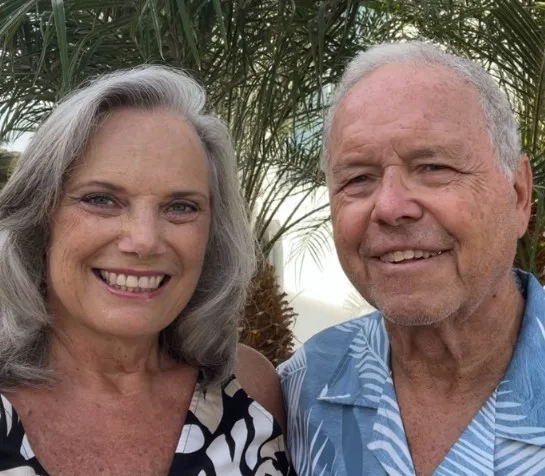
Janet Meinke, 58, and her 79-year-old husband, David, chose to retire in Ecuador in part because of its reputation as one of the region’s safest countries.
Hughes, 51, was operating a farm and a farm-to-table cafe in South Carolina when in 2022 she decided to move to Ecuador, where she could have an early retirement that wouldn’t have been possible in the United States. “The economics of Cuenca let me retire,” she said.
Edward Lindquist, originally from California, now publishes the English-language Cuenca Expat Magazine. He says his publication estimates there are as many as 20,000 native English speakers in Ecuador. The biggest chunk are U.S. expatriates and retirees.
Stevens said it’s a function of the growing interest in retiring abroad.
As of December 2022, 450,156 retired workers were receiving U.S. Social Security payments abroad, more than double the 219,504 in 1999, according to the Social Security Administration.
Those figures don’t include additional retirees who have their checks deposited in the U.S. but live abroad, or who don’t claim Social Security.
Driven by rising housing and healthcare costs and inadequate retirement savings, the trend was further buoyed by the growth of remote work that allows some retirees or spouses to earn supplemental income, and online groups offering tips and information – making overseas retirement increasingly mainstream, Stevens said.
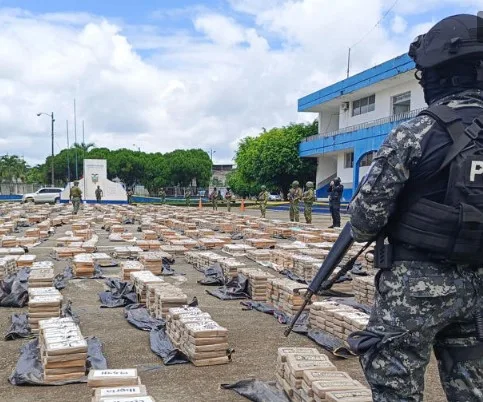
A soldier stands guard over part of 22 tons of cocaine seized last week.
“It used to be like, ‘Oh my God, my crazy grandfather went to Costa Rica,’” she said. In addition, because people are living longer, many are “eager to figure out ways that they can have an adventure in that second chapter.”
Those clusters of new Americans can boost the local economy and in some instances draw criticism from locals for pushing up housing prices.
Her publication’s 2024 Annual Global Retirement Index, a ranking based on cost, lifestyle and safety, puts Costa Rica at the top, followed by Portugal, Mexico, Panama, Spain, Ecuador, Greece, Malaysia, France and Colombia.
While predicting instability is difficult, whether it be a coup in Thailand or cartel violence in Mexico, often such events do not directly impact retirees. But some events can push residents to relocate or leave temporarily, Stevens said.
Some left Nicaragua to see how things played out following President Daniel Ortega’s growing crackdown on opponents, which began in 2018 and went on to suppress clergy, media and civil society. In recent years, Stevens said, many have returned.
She suggests people consider countries that have a long history of stability and of policies designed to attract expats, such as Costa Rica, although it too is experiencing a surge in crime; as well as to join expat Facebook groups to hear from people on the ground and follow news while understanding that the “drama in reporting from afar tends to be applied to a whole country, which paints neither a fair nor accurate picture of what’s happening on the ground in specific communities.”
_________________
Credit: USA Today





















